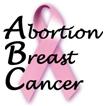NCI Web Site
The National Cancer Institute revised its web site containing information on the abortion-breast cancer link late in 1999 due to pressure from Congress. Congressman Tom Bliley sent a letter on January 12, 1999 to Richard D. Klausner, Director, Department of Health & Human Services and posed 15 questions about cancer research, some of which concerned the abortion-breast cancer research.
Mr. Klausner responded with a 15 page letter in which he identified "established" risk factors for breast cancer. The abortion-breast cancer risk, however, was not included in that list. He indicated that his department was relying on the heavily-criticized 1997 Melbye study which reported no overall relationship between abortion and breast cancer. The Melbye researchers, he said, used medical records instead of personal interviews to obtain its data. 1. He argued that the scientific research before 1997 was subject to recall bias because of its dependence on personal interviews. Recall bias is a theory which was retracted in March, 1998 by the researchers who first suggested it. 2. Is Mr. Klausner aware of the 1989 Howe study done in New York State where the data were prospective, based on fetal death certificates? The Howe researchers found an increased risk of 90%. 3.
Other forms of pressure from Congress include a debate on the abortion-breast cancer link in the U. S. House of Representatives on June 8, 1999 and Congressman Dave Weldon's August 24, 1999 letter to his colleagues calling abortion "a health care time-bomb."
Dr. Brind reported the NCI's revision of its web site in an article entitled, "NCI's New ABC 'Facts': Fewer Lies." The newer version leaves out the phrase "no convincing evidence," and the word "inconclusive." It says:
"The relationship between abortion and breast cancer has been the subject of extensive research. However, evidence of a direct relationship between breast cancer and either induced or spontaneous abortion is inconsistent. Some studies have indicated small elevations in risk, while others have not shown any risk associated with either induced or spontaneous abortion."
This statement is conspicuous for what it still does not tell American women. It still does not tell women that there are 27 out of 34 worldwide studies showing a link, 13 out of 14 of which are American studies associating abortion as a risk factor for breast cancer. It still does not inform women that five studies show more than a twofold elevation in risk and that 17 are statistically significant. Finally, it continues to confuse induced and spontaneous abortions, when in fact miscarriage doesn't generally increase breast cancer risk. However, the "outright lie" described in Dr. Brind's lecture which said, "The scientific rationale for an association between abortion and breast cancer is based on limited experimental data in rats, and is not consistent with human data." was removed from the web site altogether.
- 1. Melbye M, Wohlfahrt J, Olsen JH, Frisch M, Westergaard T, Helweg-Larsen K, Andersen PK. "Induced Abortion and the Risk of Breast Cancer." N Engl J Med 1997; 336:81-5
- 2. Meirik O, et al. letter re. Relation between induced abortion and breast cancer. J Epidemiol Community Health 1998;52:209
- 3. Howe HL, Senie RT, Bzduch H, Herzfeld P. "Early Abortion and Breast Cancer Risk Among Women under Age 40," Int J Epidmiol 1989;18:300-4

